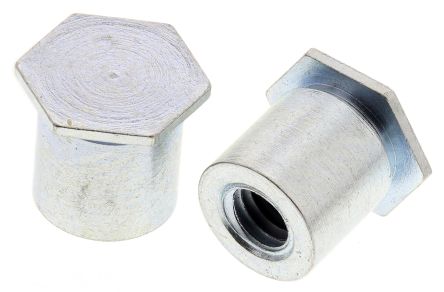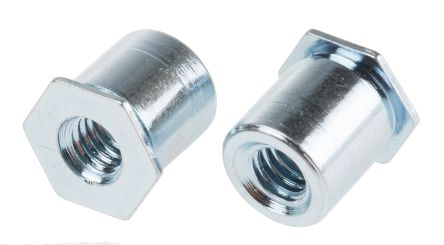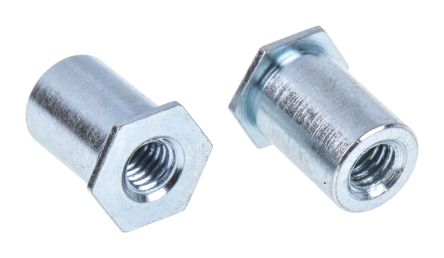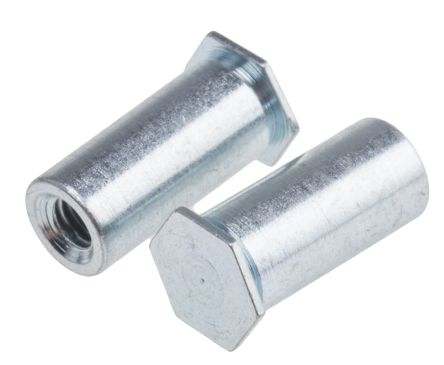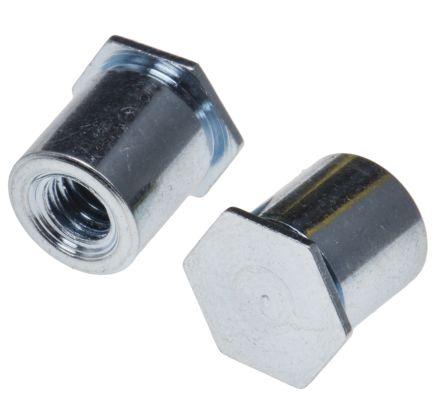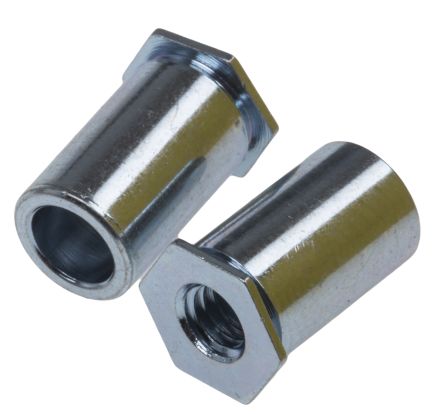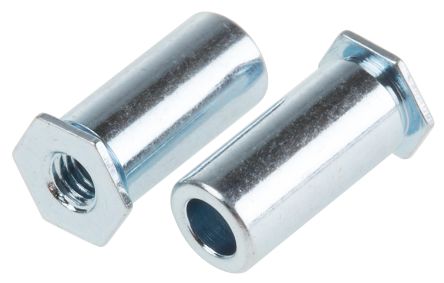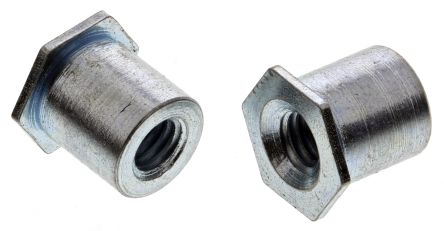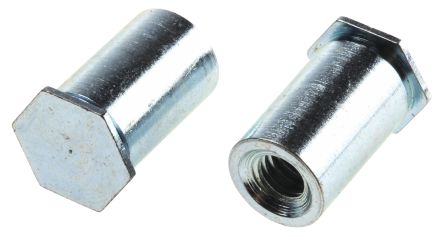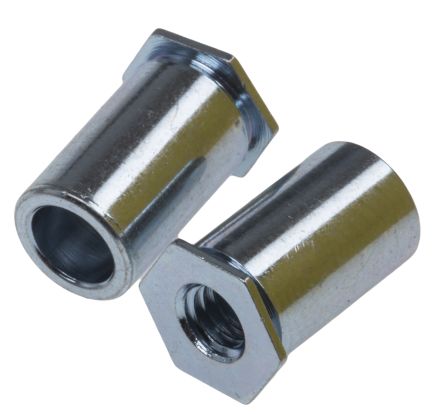- Automation & Control Gear
- Cables & Wires
- Enclosures & Server Racks
- Fuses & Circuit Breakers
- HVAC, Fans & Thermal Management
- Lighting
- Relays & Signal Conditioning
- Switches
- Batteries & Chargers
- Connectors
- Displays & Optoelectronics
- ESD Control, Cleanroom & PCB Prototyping
- Passive Components
- Power Supplies & Transformers
- Raspberry Pi, Arduino, ROCK, STEM Education & Development Tools
- Semiconductors
Self-Clinching Standoffs
Self-clinching standoffs are a type of fastener used to insert a load bearing thread into a sheet of material, often in order to raise it above another. They work in a similar way to rivet bushes, allowing greater loads to be fastened to relatively weak material.
They are inserted into a pre-drilled hole, and are then squeezed to force the sheet material to flow into the grooves on the shaft, which secures it into place. The head of the standoff sits flush within the sheet after installation.
What are self-clinching standoffs used for?
Self clinching standoffs are most commonly used to space two components apart, such as a printed circuit board and a metal case. In this instance, keeping the two parts away from each other helps to prevent electrical shorts.
Types of self-clinching standoffs
The two key types of self clinching standoff are through-threaded and blind-threaded. Through-threaded standoffs have a hole the whole way through, whereas blind-threaded standoffs have a hole that is cut off at a specified depth. The advantage of blind threading is that it allows the outer panel to remain smooth and closed.
11 Products showing for Self-Clinching Standoffs
Related links
- RS PRO Steel Zinc Plated Self-Clinching Standoff, M3
- RS PRO Steel Zinc Plated Self-Clinching Standoff, M4
- RS PRO Steel Clear Passivated M4
- RS PRO Steel Clear Passivated M3
- Self-Clinching Captive Studs
- Clinch Nuts
- RS PRO Steel Zinc plated & clear Passivated Self Clinching Stud length-8mm
- RS PRO Steel Zinc plated & clear Passivated Self Clinching Stud length-14mm
